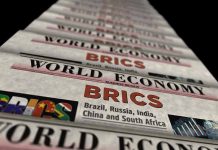
(DailyDig.com) – Amidst an already weak global economy and political precarity for U.S. and European leaders, the latest Middle Eastern conflict has thrown another wrench into energy markets throughout the globe.
At least 700 people were killed over the weekend when Hamas militants, supported by Iran, attacked Israel. The Israeli government has started bombing the territory of Gaza, which is now controlled by Hamas. Hezbollah has supported Hamas and continues to pose a problem for Israel on its northern border.
Legislators have called for more U.S. sanctions on Iran in the wake of this weekend’s unexpected assault on Israel, which has the potential to undermine ongoing attempts to improve ties between Saudi Arabia and Israel. Both scenarios carry the risk of driving up already expensive oil prices.
The region is home to major oil producers like Saudi Arabia and Iran, and important shipping routes run through bottlenecks at the Suez Canal, Bab-el-Mandeb, and the Strait of Hormuz. The impact would vary depending on the extent and length of the conflict, and whether it propagates to other areas in the region.
Even though equities and oil markets may feel the effects of a war in the Middle East right away, Bank of International Settlements general manager Agustin Carstens said it’s too soon to predict what the economic ramifications may be.
Any type of economic unpredictability raises the risk premium and slows decision-making, according to Carl Tannenbaum, the Northern Trust chief economist. There is uncertainty about the next oil field that will open.
Ill Capital Management’s head economist, Karim Basta, warned that the fighting will likely lead to increased oil prices, inflation, and GDP forecast threats.
Rising oil costs specifically might dampen economic optimism by causing consumers to pay more for energy.
The background of a new regional conflict in the Middle East might lead markets to arrive at a different conclusion in this situation, even if dropping interest rates can act as an indicator for an upsurge in inflation by motivating firms and consumers to spend and borrow more.
Copyright 2023, DailyDig.com













